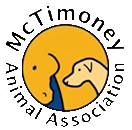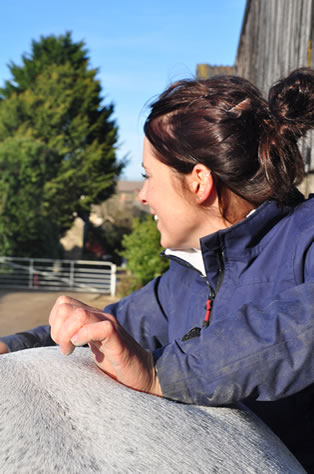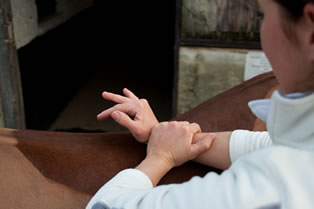Frequently Asked Questions
- Is there anything I have to do before my animal is treated?
- Before treatment takes place an owner must obtain permission from their veterinary surgeon. This can be obtained over the phone and is a legal requirement for any practitioner. You will be asked to sign a form prior to treatment to confirm permission has been obtained.
- How long does a treatment last?
- The treatment process usually takes around an hour to complete; initial consultations may take a little longer. Laura plans to give each animal as much time and patience as required for a successful treatment.
- How many treatments will my animal need, and how often?
- Minor issues are usually resolved with a couple of treatments whereas more specific problems may require several sessions spread over a few months. Following this, maintenance checks are recommended every 3-6 months depending on an animal’s lifestyle, workload, and competition schedule.
- Can I ride my horse/walk my dog after a treatment?
- Ideally your horse or dog will have a 24-48 hr period of rest post-treatment. Like humans, they can feel a little lethargic following treatment and it is important to give them time to feel the full benefits. However, this largely depends on the areas that have been treated and how an individual reacts, so an aftercare plan will be tailored to suit your animal.
- How will my animal react to treatment?
- A majority of animals enjoy being treated and find the experience very relaxing; some may be a little nervous or wary so it is important that an owner or experienced handler is present for reassurance.
- What are the causes of musculoskeletal discomfort in horses?
- Chronic
- Poorly fitting tack
- Dental issues
- Compensation from a previous injury or weakness
- Strain from repetitive exercises or introduction of working at the next level
- Poor conformation
- Unbalanced feet
Acute
- Rotational falls
- Slipping over out hacking, hunting, competing, or in the field
- Landing awkwardly after a jump
- Getting cast in the stable
- Incident whilst loading, unloading, or travelling
- What are the causes of musculoskeletal discomfort in dogs?
-
Chronic
- Pulling on the lead
- Breed specific conformation issues, such as a long back
- Jumping on/off furniture
- Daily activities such as throwing a ball; constantly twisting in the same direction causing repetitive strain
- Introduction of new exercises to a training regime
- Built up compensation issues from an old injury
Acute
- Accident; collision with another dog or road traffic incident
- Slipping over on floors at home
- Falls during training, for example agility dogs or racing greyhounds
- Enduring rough play
- Why McTimoney?
- McTimoney therapy is a whole body treatment; it assesses the various muscles and skeletal structures of the neck, back, and pelvis incorporating how each part is interconnected.
It is a gentle and relaxing technique of physical therapy making it suitable for all animals; young, old, nervous, or those that have never been treated.
McTimoney applies particular focus on the pelvis; research has shown the equine pelvis works in conjunction with the hindlimbs and lumbar spine to create 85% of the power for forward propulsion (Pusey et al, 2010). Therefore, if the pelvis or area of the spine is not functioning at its full potential it becomes increasingly difficult for a horse to engage the hind quarters, work correctly over the back, and remain supple.
- Poorly fitting tack
- Dental issues
- Compensation from a previous injury or weakness
- Strain from repetitive exercises or introduction of working at the next level
- Poor conformation
- Unbalanced feet
Acute
- Rotational falls
- Slipping over out hacking, hunting, competing, or in the field
- Landing awkwardly after a jump
- Getting cast in the stable
- Incident whilst loading, unloading, or travelling
- Pulling on the lead
- Breed specific conformation issues, such as a long back
- Jumping on/off furniture
- Daily activities such as throwing a ball; constantly twisting in the same direction causing repetitive strain
- Introduction of new exercises to a training regime
- Built up compensation issues from an old injury
Acute
- Accident; collision with another dog or road traffic incident
- Slipping over on floors at home
- Falls during training, for example agility dogs or racing greyhounds
- Enduring rough play



